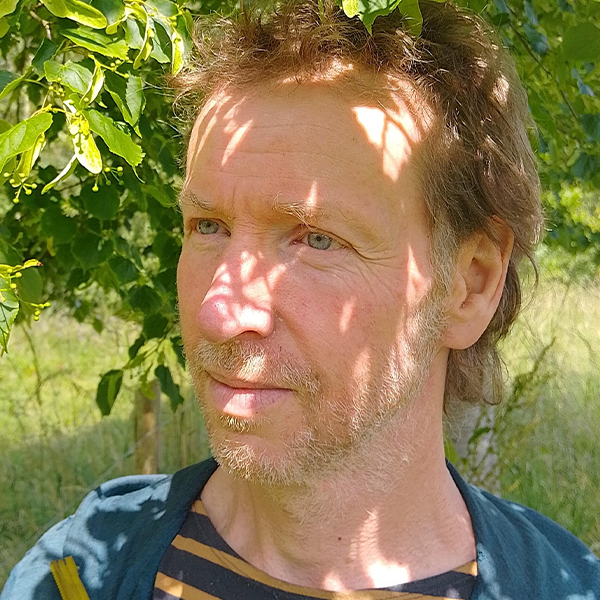
Step-by-Step: Biodynamic Woodland Management
This new course is an introduction to Biodynamic Woodland Management, providing the opportunity to build the background knowledge needed to manage your woodland sustainably, and work towards creating resilient, productive woods. This six-day course is drawn from our rich biodynamic training Growing the Land, Growing People and would suit those wishing to learn about how to manage and work practically using biodynamic methods in a small woodland. It is held once a month on a Saturday.
Course summary:
Structure: 50/50 Practical and Theory
Cost: £150, Max number 12 (RMT staff can apply via CPD)
Time: 9:45- 15:00 (15 min break, 30min lunch - provided at the Woodland Kitchen)
Location: Ruskin Mill College woods
Intended Learning Outcomes
Describe the basic principles, intentions and methods of the biodynamic approach to woodland management
Understand the woodland cycle
Use woodland management hand tools safely
Recognise the woodland as a unique entity whilst seeing its relationship with the wider environment
Dates and course programme
Day 1 (November): 11/11/2023
Seeing the Wood for the Trees – getting to know the woods
Observation exercise
What is a tree? Forms, species, physiology
What is a wood? Types of wood, sizes, shapes, purpose, history
Trees in community – seeking the light, layered growth, below the surface (roots and fungi)
Genius loci, the spirit of place survey – getting to know your woods
Practical: Observation of Park Wood, the genius loci survey, collecting/sowing seeds
Day 2 (December): 9/12/2023
Care of Trees
The woodland cycle – working with daily and seasonal rhythms and conditions
Pruning, training, guarding, felling, extraction, pest control etc
Woodland management tools
Practical: small felling by hand, pruning
Day 3 (January): 13/01/2024
The Next Generation
Compost
Seeds – types, planting regimes, after-care
Cuttings, layering
How to plant a tree
Woodland soil
Practical: plant seeds and bought-in trees
Day 4 (February): 24/02/2024
The Gifts of Trees
Woodland’s providers of materials – timber, underwood, brash, fodder etc.
From seed to product, the cyclical process
Management styles – coppice, pollard, standards, plantation, continuous cover versus clear-fell, willow beds
Practical: cut a hazel coppice and process material
Day 5 (March): 16/03/2024
The Woodland Edge
How to manage the woodland edge
Biodiversity in the woodlands (above and below ground) – the role of flowers, insects, birds and bees; habitats for insects, birds, mammals and worms with trees, hedges and ponds
Hedges - hedges as wildlife corridors, maintaining hedges
Plants in woodland – indicator species
Practical: hedge-laying
Day 6 (April): 20/04/2024
The Woodlands between Sun and Earth
The woodlands as an organism
The woodlands in context of the wider environment
The biodynamic calendar
The biodynamic preparations and how to use them
Practical: Stirring and spraying the Horn Silica preparation (500)
Faculty
Chris Helliwell, MSc, Training and Development Coordinator at Clervaux Garden School
“I have been a maker of bespoke furniture and followed the craft of traditional wood for 30 years. Around 20 years ago I became involved in an eco-centre near Darlington, which later became Clervaux Trust. I am fascinated by ancient, human-powered and sustainable ways of production which has led me to specialise in bowl turning. Along with the land team I help look after the young woods at Clervaux and have established new areas of woodland with a view to ecological enhancement of the farm and the security of future material for woodworking. In 2015 I completed an MSc in the Ruskin Mill Trust method, and for many years have taught crafts both outside and within Ruskin Mill where I now focus on staff training.”
Rhys Townsend, Tutor and Trust Woodland Advisor, LANTRA trainer
“I have worked for Ruskin Mill Trust since 2001 carrying out a variety of roles including woodland management, bow making and archery tutor, and developing the woodland management curriculum. I developed the Welsh stick chair and green woodwork curriculum at Coleg Plas Dwbl and am the LANTRA trainer for Ruskin Mill Trust, focusing on forestry and arboriculture machinery qualifications. I have a huge passion for green woodwork and hand felling techniques.”
Richard Turley, BSc Hons, MSc, PGCE, Woodland Manager, Advanced Practitioner and Advisor, Tutor at Ruskin Mill College.
“My interest has always been embedded in landscape and how it has formed socially, biologically and physically. After a degree in geology, I decided to follow a passion for working with nature, and after a brief spell helping to grow vegetables in a Victorian walled garden, I found myself at Ruskin Mill College helping to develop a woodland craft curriculum. I have 25 years of experience in therapeutic teaching of traditional woodcraft and in managing our small ancient beechwood. I continue to teach young adults and also challenge myself to gain wisdom of woodland and associated crafts, recently developing my interest of storytelling in the landscape.”
Course information and application
*External course fee: £150
RMT staff: No fee (apply via the CPD process)
Booking: To book, email office@biodynamic.org.uk
Sawing a felled tree together
Tree canopy at Ruskin Mill woodlands
Chris Helliwell, course leader
Rich Turley, course leader
Rhys Townsend, course leader






